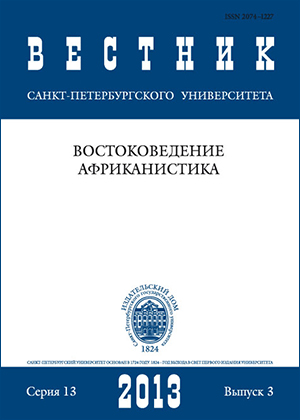Worldview as reflected in the Manding proverbs
Abstract
Based on the analysis of the Manding proverbs, the article identifies the main worldview features and some norms of the society. The important role of the Manding proverbs in the culture explained the active role of oral tradition in the lives of these people, as well as the fact that the main value of the message is to appeal to the past experience and customs. A large number of proverbs reflect the collectivist orientation of Manden culture as the foundation of human interaction. Analyzing the Bamana proverbs, we can also note the significant prevalence of proverbs, which mean the external locus of control. In terms of causal attribution, adverbial attribution is most often used in proverbs, which corresponds again to an external locus of control. Various proverbs apply to the certain groups of the society, so there are sayings regarding the situation from different points of view and giving the opposite advice. So, there are a number of proverbs, addressed to the heroes, and some focus on the ordinary people. These proverbs often claim opposite values.
Keywords:
oral tradition, proverbs, worldview, Manding people
Downloads
References
Downloads
Published
How to Cite
Issue
Section
License
Articles of "Vestnik of Saint Petersburg University. Asian and African Studies" are open access distributed under the terms of the License Agreement with Saint Petersburg State University, which permits to the authors unrestricted distribution and self-archiving free of charge.





